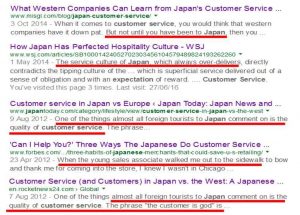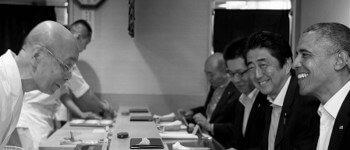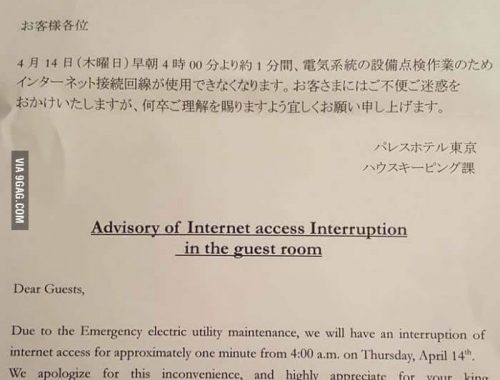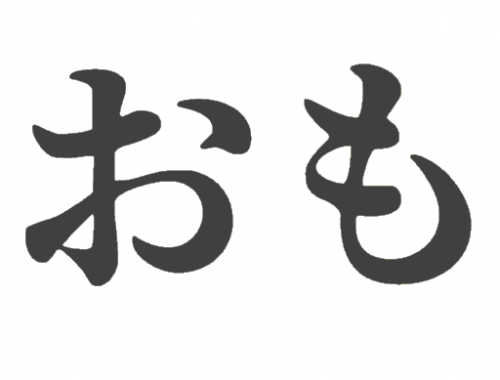Customer Service in Japan really is extraordinary! Ask anybody who has been there....
Unless you have been to Japan it is a bit difficult to understand how extraordinary the customer service is there. I can relate my positive experiences but I obviously have an agenda!

Instead, here in a 1 minute video mashup are three comments from non-Japanese about their experience and opinion of it. I think they sum it up perfectly.
The main question I am often asked is this. "Is extraordinary Japanese customer service something only the Japanese can deliver?"
I believe not. Rather, the thing that might separate them from us is their ability to deliver and sustain these service behaviours equally across all price points and industries. They train for it just as we in the west do. But they TAKE PLEASURE in serving. A quiet pleasure that is referred to broadly as OMOTENASHI.
Join us in my upcoming ½ day workshop in London to find out how and why they find that pleasure and what they do so consistently. Understand the model of their service and hospitality attitudes and behaviours. Anybody with a professional role in the world of customer service ought to be interested in learning about this model and how we can apply it to our U.K. context.


